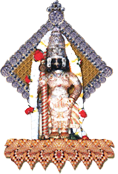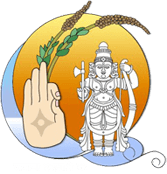यः एनं वॆत्ति हंतारं यः च एनं मन्यते हतम्
उभौ तौ न विजानीतः न अयं हंति न हन्यते ॥ २.१९ ॥
ಯಃ ಏನಂ ವೇತ್ತಿ ಹಂತಾರಂ ಯಃ ಚ ಏನಂ ಮನ್ಯತೆ ಹತಮ್
ಉಭೌ ತೌ ನ ವಿಜಾನೀತಃ ನ ಅಯಂ ಹಂತಿ ನ ಹನ್ಯತೆ || ೨.೧೯ ||
yaH EnaM vEtti haMtAraM yaH cha EnaM manyate hatam
ubhau tau na vijAneetaH na ayaM haMti na hanyate || 2.19 ||
The person who thinks that ‘this’ soul is the independent agent in killing ‘that’ soul, and the person who thinks ‘that’ soul is killed by ‘this’ soul acting independently – both these persons do not perceive the truth; because a soul neither slays nor is slain
yaH EnaM haMtAraM vEtti yaH cha EnaM hatam manyate tau ubhau na vijAneetaH
Whoever thinks he has killed independently and whoever thinks that another peson was killed, both of them have not understood the truth and are under delusion.
ayaM na haMti na hanyate
The soul neither kills nor is killed.
Some relevant questions.
1. What is the sense of the word “kill” here?
By upalakshana it stands for all actions.
2. Does it include the common meaning of separating body and soul?
Even in this case the verse is applicable as jIva is NOT independent agent. jIva acts as per its karma as allowed by Lord.
3. If it stands for all actions, then does it not say that jIva is actionless? Is this position sound?
Dependence not does not necessarily imply jIva is without free will and action. As jIva is completely dependent on Lord for all actions, jIva is actionless only relative to the actions of God.
4. Who are the two persons said to be gnorant.
a. One who thinks jIvas are independent in performing actions.
b. One who thinks jIvas are not eternal.
5. Since Arjuna lamented in earlier verses that Bhisma and other may be killed by him, Shri Krishna enlightens Arjuna that he is NOT independent agent here and is only a subordinate agent.
Shri Krishna explains to Udhava in Bhagavatam 11:16:7 as given below.
jñātvā jñāti-vadhaḿ garhyamadharmaḿ rājya-hetukam
tato nivṛtto hantāham hato’yam iti laukikaḥ
sa tadā puruṣa-vyāghro yuktyā me pratibodhitaḥ
My dear friend Arjuna refused to fight under the wrong idea that he was the killer and the foe was liable to be killed by him. I dispelled his doubt.
Shri Krishna then repeats the vibhuti adhyaya (10th chapter) of Gita in Bhagavatam to show to Udhava how He dispelled the doubt of Arjuna. In short Shri Krishna is present in everything excellent and He is the independent doer. hence Vibhuti adhyaya is expansion of this verse.


